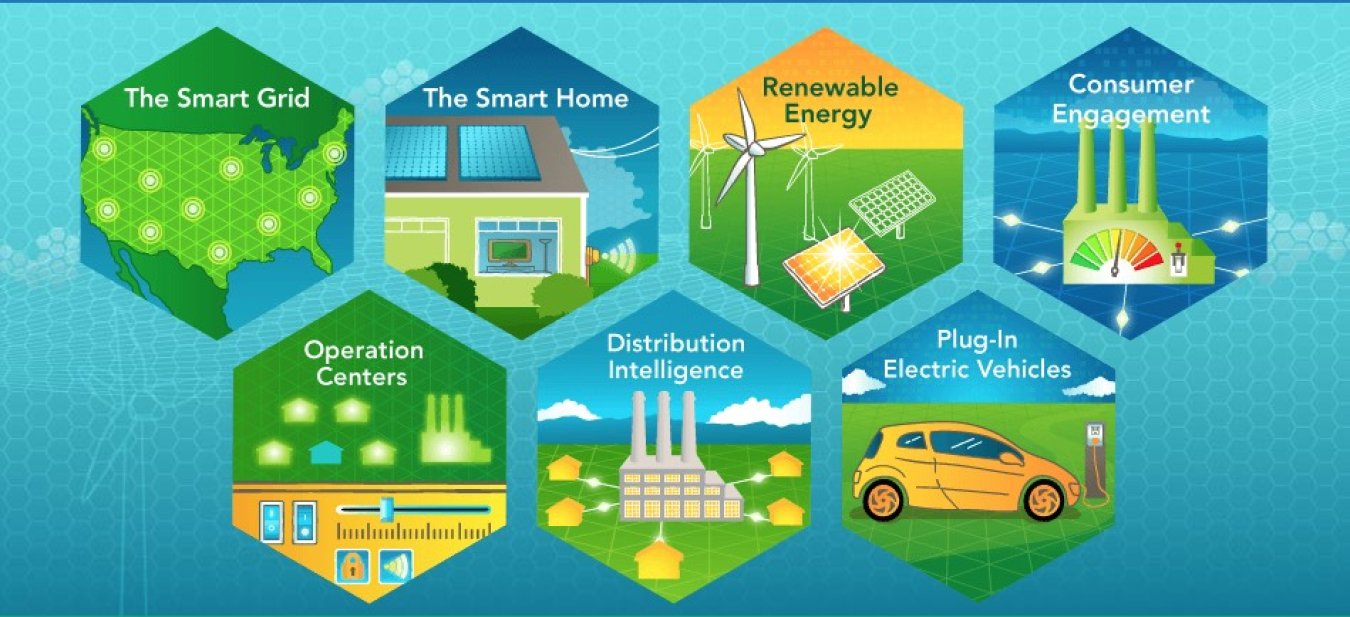Intelligent Grid Systems: Advancing Modern Energy Solutions


Revolutionizing Energy Solutions: The Role of Intelligent Grid Systems
In the era of rapid technological advancement, the integration of intelligent grid systems stands out as a transformative force in the energy sector. These innovative systems are reshaping the way we generate, distribute, and consume energy, ushering in a new era of efficiency and sustainability.
Understanding Intelligent Grid Systems: A Technological Overview
Intelligent grid systems leverage advanced technologies, such as Internet of Things (IoT), artificial intelligence (AI), and smart sensors, to create a dynamic and responsive energy infrastructure. Unlike traditional grids, these systems can gather real-time data, analyze it instantaneously, and make informed decisions to optimize energy flow.
Enhanced Monitoring and Control: The Backbone of Intelligence
One of the primary advantages of intelligent grid systems lies in their ability to provide enhanced monitoring and control. Smart sensors placed strategically throughout the grid continuously collect data on energy consumption, production, and distribution. This real-time monitoring enables operators to identify and address issues promptly, minimizing downtime and improving overall reliability.
Optimizing Energy Distribution: A Smarter Grid Approach
Traditional energy grids often face challenges related to inefficient energy distribution. Intelligent grid systems tackle this issue by implementing smart algorithms that analyze data on energy demand and supply. This analysis allows for dynamic adjustments in energy distribution, ensuring that power is directed where it is needed most, reducing wastage and enhancing overall efficiency.
Integration of Renewable Energy Sources: Paving the Way for Sustainability
As the world shifts towards sustainable energy practices, intelligent grid systems play a pivotal role in integrating renewable energy sources seamlessly. These systems can efficiently manage the variability of renewable energy, such as solar and wind power, ensuring a stable and reliable energy supply even in the face of fluctuating conditions.
Grid Resilience and Reliability: Adapting to Changing Conditions
The adaptability of intelligent grid systems contributes significantly to grid resilience and reliability. In the face of natural disasters or unexpected events, these systems can reroute energy, isolate damaged areas, and quickly restore power. This capability enhances the overall resilience of the grid, minimizing disruptions for end-users.
Empowering Consumers: Smart Grids for Smart Homes
Intelligent grid systems extend their benefits to end-users through the concept of smart homes. With smart meters and connected devices, consumers gain real-time insights into their energy consumption. This transparency allows individuals to make informed decisions, optimize energy usage, and potentially reduce costs.
Cybersecurity Considerations: Safeguarding the Smart Grid
While the advantages of intelligent grid systems are undeniable, the increased connectivity also introduces cybersecurity challenges. Protecting the smart grid from potential cyber threats is crucial. Robust cybersecurity measures, including encryption, regular updates, and continuous monitoring, are imperative to ensure the integrity and security of the intelligent grid.
Future Prospects: Evolving Towards a Smarter Energy Landscape
The ongoing development of intelligent grid systems points towards a future where our energy infrastructure is not only intelligent but also self-learning and adaptive. Machine learning algorithms will enable grids to predict and address issues before they occur, making energy distribution even more efficient and reliable.
Exploring Further: Intelligent Grid Systems Implementation
For those eager to delve deeper into the world of intelligent grid systems, Intelligent Grid Systems offers valuable insights and resources. Explore the latest developments, case studies, and technological advancements shaping the landscape of intelligent energy solutions.
In conclusion, the adoption of intelligent grid systems represents a significant leap forward in revolutionizing our energy infrastructure. From enhancing monitoring and control to integrating renewable energy sources and empowering consumers, these systems are laying the groundwork for a smarter, more sustainable energy future.









